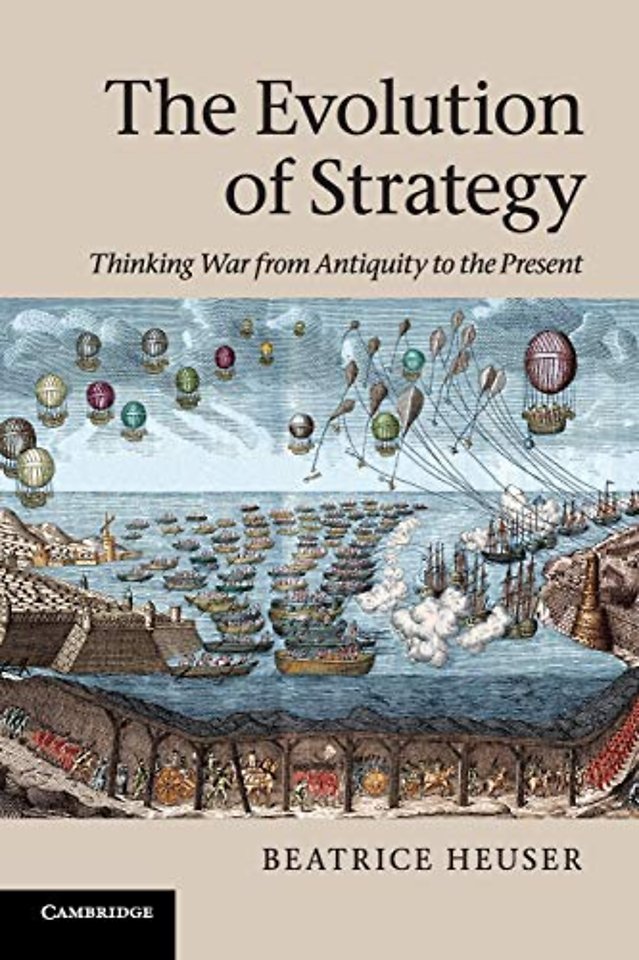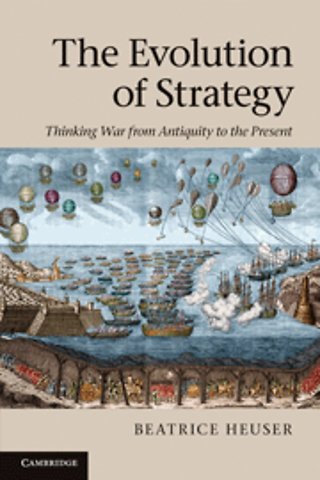The Evolution of Strategy
Thinking War from Antiquity to the Present
Samenvatting
Is there a 'Western way of war' which pursues battles of annihilation and single-minded military victory? Is warfare on a path to ever greater destructive force? This magisterial account answers these questions by tracing the history of Western thinking about strategy - the employment of military force as a political instrument - from antiquity to the present day. Assessing sources from Vegetius to contemporary America, and with a particular focus on strategy since the Napoleonic Wars, Beatrice Heuser explores the evolution of strategic thought, the social institutions, norms and patterns of behaviour within which it operates, the policies that guide it and the cultures that influence it.
Ranging across technology and warfare, total warfare and small wars as well as land, sea, air and nuclear warfare, she demonstrates that warfare and strategic thinking have fluctuated wildly in their aims, intensity, limitations and excesses over the past two millennia.
- Takes a narrative approach to the evolution of strategy, tracking strands of thought and the provenance of ideas and their development, rather than discussing either strategists or topics in isolation
- Uses many quotations translated into English from original source materials, allowing English-speaking readers the opportunity to engage directly with important works previously less well known
- The broad span of history covered means the narrative can focus on continuities as well as major turning points, illustrating that nineteenth- and early twentieth-century attitudes to strategy cannot be generalised
Specificaties
Inhoudsopgave
1. What is strategy?
Part II. Long-Term Constants:
2. Warfare and mindsets from antiquity to the middle ages
3. Warfare and mindsets in early modern Europe
4. Themes in early thinking about strategy
Part III. The Napoleonic Paradigm and Total War:
5. The age and mindset of the Napoleonic paradigm
6. The Napoleonic paradigm transformed: from total mobilisation to total war
7. Challenges to the Napoleonic paradigm vs. the culmination of total war
Part IV. Naval and Maritime Strategy:
8. Long-term trends and early maritime strategy
9. The age of steam to the First World War
10. The World Wars and their lessons for maritime strategists
11. Maritime strategy in the nuclear age
Part V. Air Power and Nuclear Strategy:
12. War in the third dimension
13. Four schools of air power
14. Nuclear strategy
Part VI. Asymmetric or 'Small' Wars:
15. From partisan war to people's war
16. Counterinsurgency
Part VII. The Quest for New Paradigms after the World Wars:
17. Wars without victories, victories without peace
18. No end of history: the dialectic continues
19. Epilogue: strategy making vs. bureaucratic politics
20. Summaries and conclusions.
Anderen die dit boek kochten, kochten ook
Net verschenen
Rubrieken
- aanbestedingsrecht
- aansprakelijkheids- en verzekeringsrecht
- accountancy
- algemeen juridisch
- arbeidsrecht
- bank- en effectenrecht
- bestuursrecht
- bouwrecht
- burgerlijk recht en procesrecht
- europees-internationaal recht
- fiscaal recht
- gezondheidsrecht
- insolventierecht
- intellectuele eigendom en ict-recht
- management
- mens en maatschappij
- milieu- en omgevingsrecht
- notarieel recht
- ondernemingsrecht
- pensioenrecht
- personen- en familierecht
- sociale zekerheidsrecht
- staatsrecht
- strafrecht en criminologie
- vastgoed- en huurrecht
- vreemdelingenrecht







